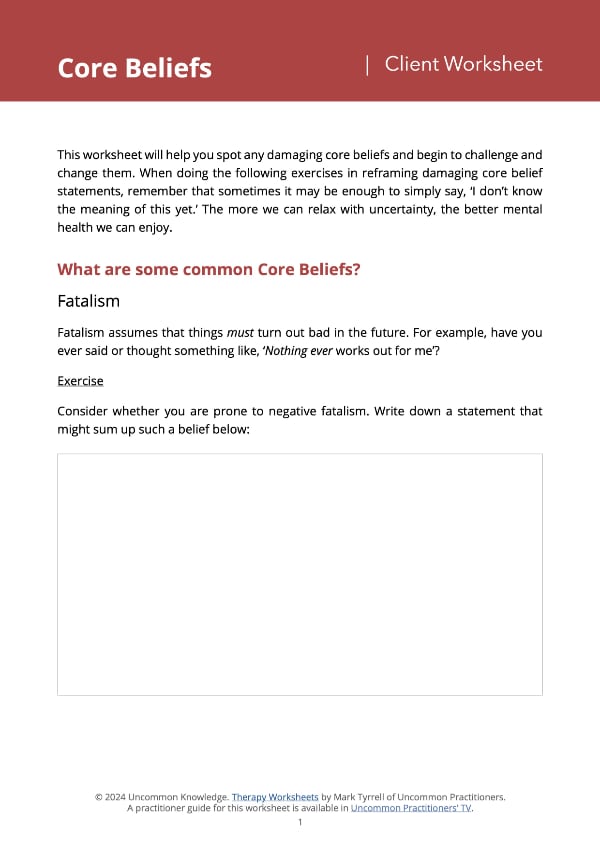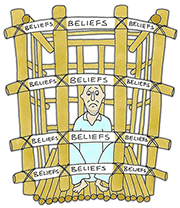Want to depress yourself?
No? Okay, but if you did, you could hardly find a better way than to spend an hour a day reading YouTube comments. With all their uncontrolled aggression, vitriol, bigotry, misogyny, misanthropy, meanness and general rubbishing of human life and thought, YouTube comments are not there to make you feel good.
You should have heard Simon. All was lost, as far as he was concerned. “Humanity is just a mess. Everyone is so foul, so bitter!”
Simon was depressed. Like many depressed people he filled a lot of his time surfing the net, reading and making YouTube comments, staying up to date with online news (where you rarely read anything remotely cheery). And as it happened, he had also just been reading a book on the history of persecution.
Prefer to watch instead?
Simon was deeply cynical about everyone and everything. Misanthropic mutterings issued forth from him as automatically as breathing.
But really, it’s just as naive to only see the worst as it is to only assume the best in others. You need a balance.
Recalling that a cynic is often just a disappointed romantic or a disenchanted idealist, I asked Simon, “Have you always felt this way about… ‘people’?”
He was silent for a moment or two, and I could see that he was thinking this over. Perhaps for the first time.
“Noooo…” he said slowly. “But over the years I’ve come to feel that people are basically violent, untrustworthy, mean.” He sighed. “People, basically, are out for themselves. No one gives a damn about anyone else.”
So was Simon being fair about ‘people’?
FREE Core Beliefs Worksheet
Use this worksheet to guide clients in transforming detrimental core beliefs. I’ll also send you my weekly Clear Thinking newsletter with actionable therapy tips.
Life through a lens
“We are all in the gutter, but some of us are looking at the stars.”
Oscar Wilde
Simon had been let down in his life. It happens to all of us, and it had happened to him. He had been let down by some people. But not all people.
However, to him it felt like all people because he focused on the let-downs.
All of us are subject to ‘confirmation bias’. We look for ‘evidence’ to back up our beliefs and prejudices, and discount (or don’t even notice) anything that offers counter-evidence to those beliefs.
On top of that, depression gets us using a strictly negative bias. Under its baleful influence, anything ‘good’ that happens is interpreted as simply the ‘exception that proves the negative rule’.
I’m not saying that a negative confirmation bias is a cause of depression, or the sole expression of depression, but it certainly is an ongoing feature of depression. And for Simon it was a major feature.
What we needed was a corrective.
I didn’t try to tell Simon that I thought he was ‘wrong’ to view other people so despairingly. You couldn’t out argue him directly. That’s the way he saw things and we need to respect the way people see things.
What I did to help correct his negative bias and help him to see with more balance.
3 ways to subtly challenge a client’s negative bias
1. Describe confirmation bias
I talked to Simon about confirmation bias, about how we ‘find what we are looking for’. He readily accepted this idea, because it seemed to correlate with his own limited view of human potential.
“The amazing thing,” I continued, “is that once you start to see it at work in yourself, you can start to overcome it…”
I just left that idea hanging in the air.
2. Talk about Planet of the Apes
A little later, when Simon was deeply relaxed during hypnosis, I simply pondered aloud:
“You know, it’s amazing how human beings coexist with so little violence. If you get a few gorillas together, more than nine or ten, say, and try to get them to coexist, they will almost immediately start trying to kill each other. (1) You could never have a large group, let alone a village… or a town… or a large city… of gorillas, because of their murderous tendencies… and yet human beings can and do coexist in relative peace… in cities with millions of inhabitants… curious when you think about it… despite what you see on the news…”
3. Set faith in humanity reviving homework
Like many people who have felt chronically let down by ‘people’, Simon was fundamentally decent himself. Which meant that generally he did what he said he would do.
For his ‘homework’ the first week, I asked him to search for ‘random acts of kindness’ on YouTube and look at the videos he found, but not to use YouTube for anything else during the week.
I also asked him to completely avoid the news for a week, telling him “…if it’s that important, you’ll get to hear about it, trust me!”‘ I was not particularly surprised when he reported feeling a little better after week one.
During later sessions I asked Simon to read up on ‘behavioural economics’, knowing that this would lead him to a bunch of research that completely confounds the old view that, when it comes to money, men and women always act out of pure self interest.
During his hypnosis sessions, I told stories to Simon, both true and fictional (but still in a sense ‘true’). Stories of human courage, decency and compassion, and even tales of ‘secret kindnesses’ that could not have been done ‘to look good’, because no one knew of them.
I used many other interventions with Simon, including addressing all-or-nothing thinking (can a generally kind person occasionally do something unkind? – that kind of thing).
Of course, not all depressed people take such a dim view of other people. But sometimes you will notice that extra negative bias at work on your clients’ natural human confirmation bias.
Simon was broke when he came to see me. I didn’t charge him. I’m not suggesting you do this, but in his case it clearly was, in a way, part of his therapy.
Would you like to enhance your reframing skills?
Click here to read how my online course ‘Conversational Reframing’ shows you how to craft cunning reframes and slip them past your clients’ conscious criticisms.
Notes:
- See The Eternal Child: How Evolution Has Made Children of Us All by Clive Bromhall












